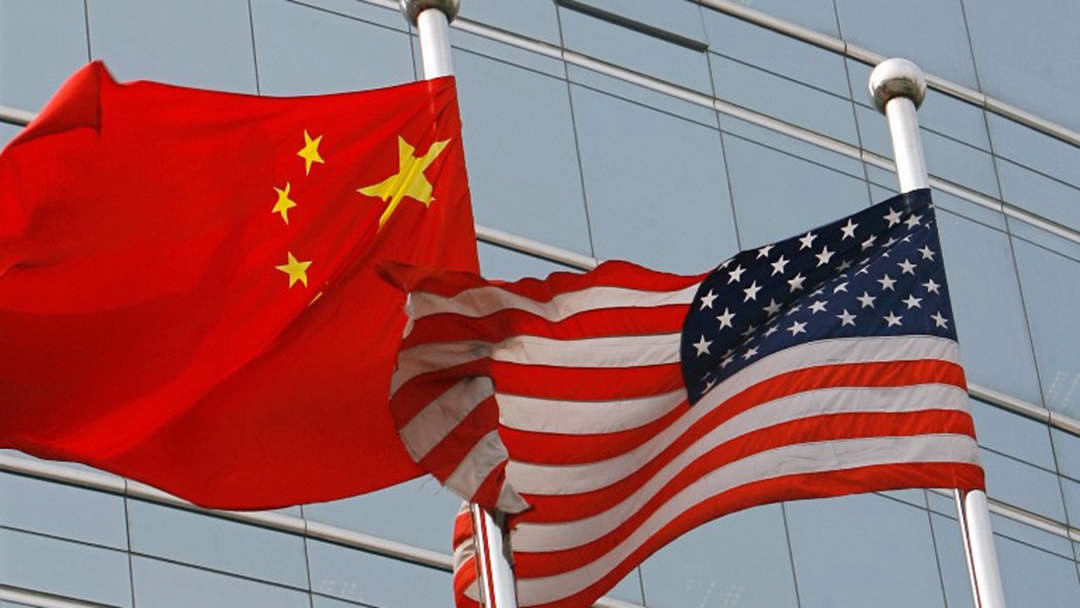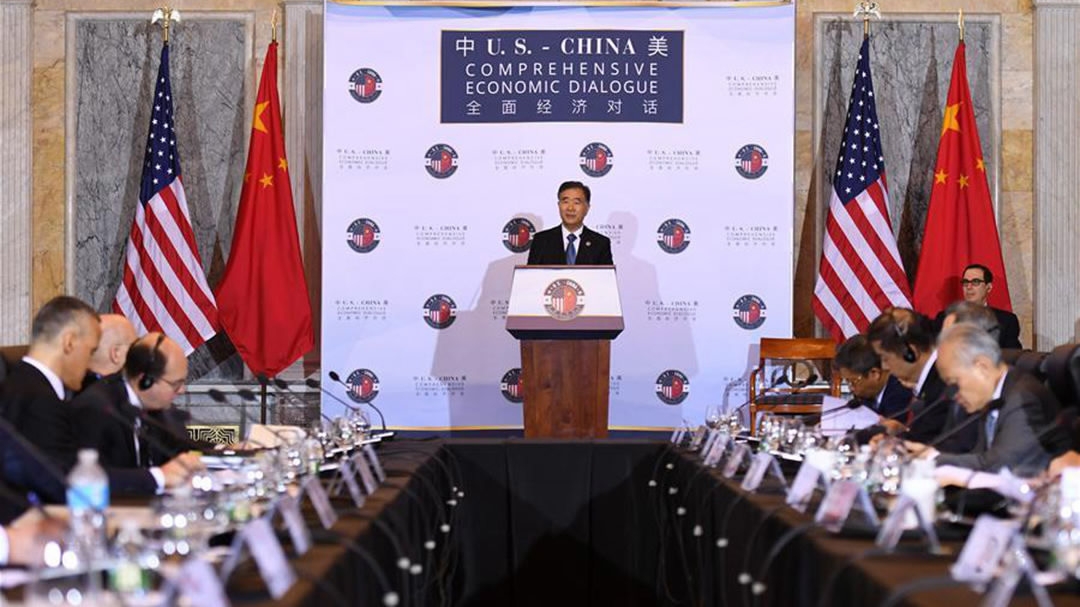
Business
16:35, 04-Aug-2017
US corporate acquisitions in China rise in first half of 2017: official

US corporate acquisitions in China saw steady growth in the first-half of the year, a Chinese official said Thursday.
The value of foreign investment from US companies through mergers and acquisitions (M&As) in China rose 2.3 percent year on year in the January-June period, said Gao Feng, a spokesperson of the Ministry of Commerce.
There has been a gaining streak in yuan terms for the past years except for a decline in 2015, Gao said at a press conference.
His remarks came in response to media reports that "US corporate M&As had collapsed to their lowest level for 14 years" in H1 due to rising trade frictions.

Chinese Vice Premier Wang Yang (C) addresses the first China-US Comprehensive Economic Dialogue in Washington on July 19, 2017. /Xinhua Photo
Chinese Vice Premier Wang Yang (C) addresses the first China-US Comprehensive Economic Dialogue in Washington on July 19, 2017. /Xinhua Photo
Gao disputed the reports, saying the two sides were working actively and cooperation had sound momentum after a 100-day plan and the first round of economic dialogue being held over the past three months.
"We have made clear the direction of the one-year plan in economic cooperation and will strive to achieve an early harvest," Gao said.
Economic and trade cooperation is said to play the roles of a "ballast stone" and "propeller" in the relationship between the two economies, which have become closely interconnected.
China has become the largest trade partner of the US, while the latter is China's second largest. Bilateral trade surged nearly 207-fold to 519.6 billion US dollars in 2016 from the level in 1979, when the countries established diplomatic ties.
"Cooperation brings mutual benefits and confrontation causes destruction to both sides," Gao said.
During the conference, the MOC spokesperson also said that the Chinese government has always encouraged M&As by foreign companies. The ministry on Sunday relaxed rules on foreign-funded firms, with less red tape in acquisitions and business registration.
(Source: Xinhua)

SITEMAP
Copyright © 2018 CGTN. Beijing ICP prepared NO.16065310-3
Copyright © 2018 CGTN. Beijing ICP prepared NO.16065310-3